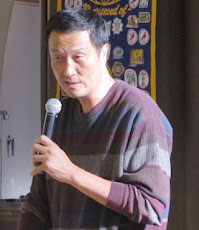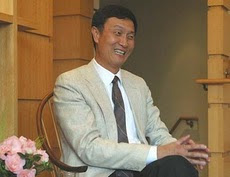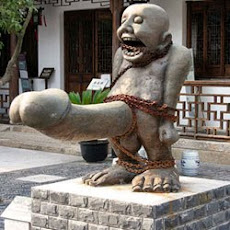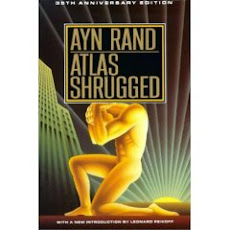
陈凯 按:只有建立在正义、良知与理性的社会才有生命力与创造力。 建筑在枪杆子,暴力、恐惧与谎言的社会一定是一个崇尚虚无与强权的、永远在恶性朝代循环中挣扎煎熬的、毫无生命力与创造力的社会。
Kai Chen's Words: Only a society built upon justice, human conscience and reason can be a society of life and creativity. A society such as China which is built upon guns, violence, fear and lies must be a society of despair, misery and death, mired in never-ending man-eating dynastic cycles, with nothing of value to offer to mankind.
Empire of Lies: The Truth about China in the Twenty-First Century
一个谎言帝国--二十一世纪的中国
The Western press these days is full of stories on China’s arrival as a superpower, some even warning that the future may belong to her. Western political and business delegations stream into Beijing, confident in China’s economy, which continues to grow rapidly. Crowning China’s new status, Beijing will host the 2008 Olympic Games.
But as Guy Sorman reveals in Empire of Lies China’s success is, at least in part, a mirage. True, 200 million of her subjects, those fortunate enough to be working in an expanding global market, enjoy a middle-class standard of living. The remaining one billion, however, are among the poorest, most exploited people in the world. Popular discontent simmers, especially in the countryside, where it often flares into violent confrontation with Communist Party authorities. In truth, China’s economic “miracle” is rotting from within.
In this extraordinary book, Sorman explains how the West has conferred greater legitimacy on China than do the Chinese themselves. He has visited the country regularly for forty years and spent most of the past three years exploring her teeming cities and remotest corners. Empire of Lies is the culmination of these travels and perhaps the only book on China that lets the Chinese people speak for themselves.
------------------------------------------------------------------------------
The mask ripped off, the Potemkin Village blown up June 4, 2008
Format:Hardcover
Economic conservatives and neoliberal "spinners" from James
Fallows and Reed Hundt through Bill Clinton (singled out in one passage) are
exposed as frauds, liars and enablers for a China of modern myth in this
power-packed new book.
French journalist, politician and philosopher (and why can't we get that combo in America), exposes the lies of both the Chinese Communist Party and its Western apologists, which range from hardcore economic conservative American capitalists to French communists.
There's a few basic lies that underscore the scores of surface lies both the Chinese Party and its western enablers tell.
Sorman says Lie No. 1 is that capitalism will lead to democracy. He has a clear, albeit much smaller, counterexample - Singapore, led by, ironically or not, Chinese.
Lie No. 2 is that there is a "Chinese mindset," "Chinese way of business," or whatever, that is antithetical to democracy. Variants of that include references (usually wrong ones, according to Sorman) to Confucianism, etc. Counterexample? Taiwan. Daoism, repressed in China, flourishes there along with Confucianism, Buddhism and Protestant and Catholic Christianity -- along with traditional Chinese culture.
Lie No. 3 is the lie of Chinese economic statistics. Sorman says that even if you don't discount the costs of environmental degradation, Chinese growth rates are almost surely somewhat overstated, and possibly highly overstated.
Lie No. 4 might be a partial variant of No. 2, and would be the "China isn't all that bad" lie, especially if you compare it to the former Soviet Union. Sorman argues the other way around, that China is arguably more repressive than the Soviets of Khrushchev and beyond, at least in some ways.
As a result of all this, Sorman says, we really don't have that much to fear from China as a foreign power in general or a military adventurer in particular. On the economic side, in fact, he expects the rich-poor gap to be likely to worsen, not improve.
Another "sublie" would be the one that Western countries, through "economic involvement" with China, can moderate its behavior. China isn't going to be moderated by that. And, as a sidebar, Sorman estimates that about half the Western-owned factories in China are money-losers.
Read this book and get an unvarnished view of today's China.
French journalist, politician and philosopher (and why can't we get that combo in America), exposes the lies of both the Chinese Communist Party and its Western apologists, which range from hardcore economic conservative American capitalists to French communists.
There's a few basic lies that underscore the scores of surface lies both the Chinese Party and its western enablers tell.
Sorman says Lie No. 1 is that capitalism will lead to democracy. He has a clear, albeit much smaller, counterexample - Singapore, led by, ironically or not, Chinese.
Lie No. 2 is that there is a "Chinese mindset," "Chinese way of business," or whatever, that is antithetical to democracy. Variants of that include references (usually wrong ones, according to Sorman) to Confucianism, etc. Counterexample? Taiwan. Daoism, repressed in China, flourishes there along with Confucianism, Buddhism and Protestant and Catholic Christianity -- along with traditional Chinese culture.
Lie No. 3 is the lie of Chinese economic statistics. Sorman says that even if you don't discount the costs of environmental degradation, Chinese growth rates are almost surely somewhat overstated, and possibly highly overstated.
Lie No. 4 might be a partial variant of No. 2, and would be the "China isn't all that bad" lie, especially if you compare it to the former Soviet Union. Sorman argues the other way around, that China is arguably more repressive than the Soviets of Khrushchev and beyond, at least in some ways.
As a result of all this, Sorman says, we really don't have that much to fear from China as a foreign power in general or a military adventurer in particular. On the economic side, in fact, he expects the rich-poor gap to be likely to worsen, not improve.
Another "sublie" would be the one that Western countries, through "economic involvement" with China, can moderate its behavior. China isn't going to be moderated by that. And, as a sidebar, Sorman estimates that about half the Western-owned factories in China are money-losers.
Read this book and get an unvarnished view of today's China.


































